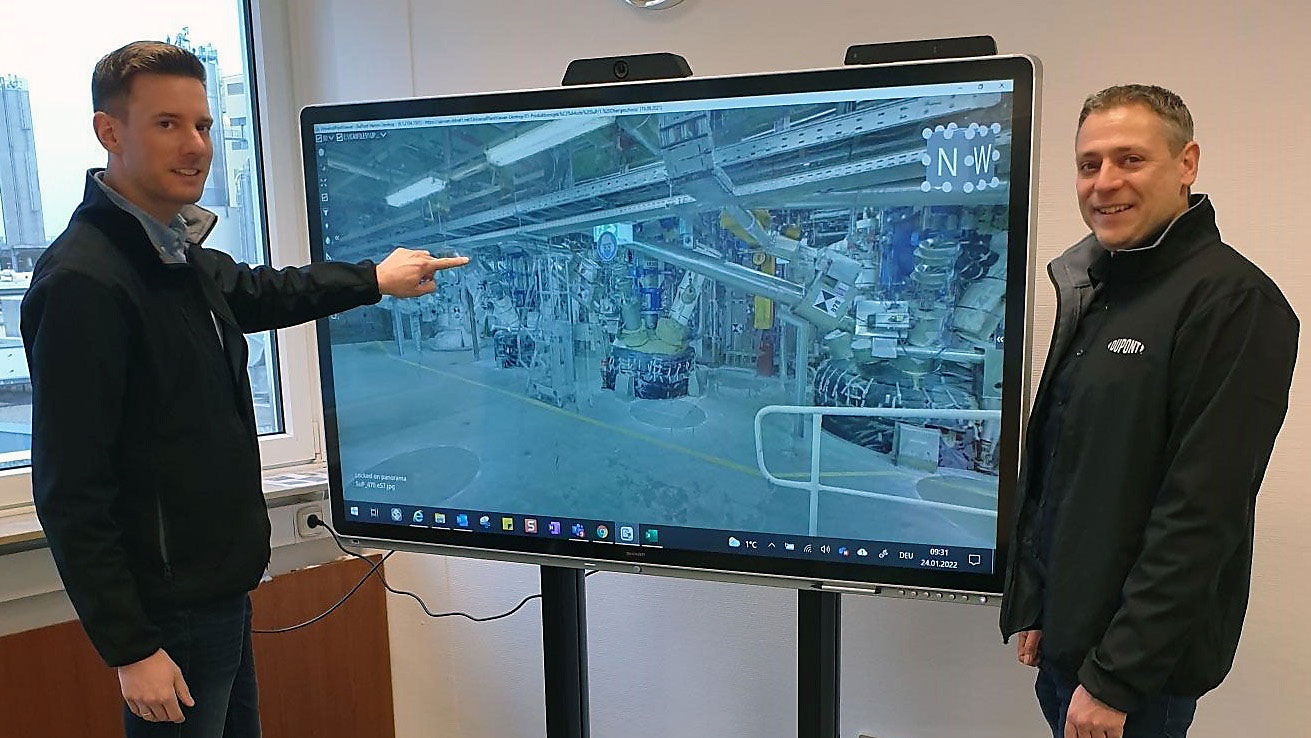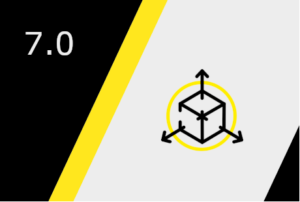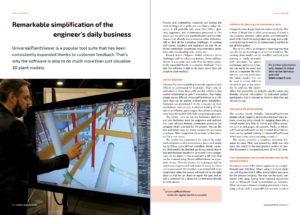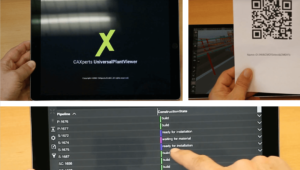From analogue to digital operation – delivering cost savings and operational reliability improvements to DuPont Uentrop.
Asset management has undergone a sea change in recent years. While the objectives of increasing productivity, lowering costs, improving reliability and speeding up innovation remain the same, the backdrop in front of which these goals need to be realised has changed. Global uncertainty, market instability, unreliable supply chains, remote working and, in some regions, a labour shortage have accelerated a shift to digitalisation. For sceptics who think digital technologies do not deliver the promised returns and are difficult to implement, there is a sure-fire exception: digital twins. As delivered by DuPont Sustainable Solutions (DSS) and its digital technology partner CAXperts, a customised digital twin can be created in 30 days, scaled up within a few weeks and provide a return on investment within a year, along with a whole host of operational benefits.
What is a digital twin?
Essentially a virtual 3D model of physical assets, a digital twin provides all employees with remote access to the physical working environment. The DSS and CAXperts digital twin not only brings data from all existing digital systems together in a single point of truth, but also enables users to view that data from any device and any location, provided they have access rights. And that includes P&ID, LaserScans, drawings, work orders, notifications, photos and, for example, the asset history. A tool like this makes data sharing and communication with personnel, contractors and other team members easy. There is no need to transfer large files.
Operators and project partners can all see the same virtual plant on their mobile device or desktop and can annotate equipment in the digital twin, create quick red markings, add concepts, update P&IDs, or simply share files and/or update work locations. An intelligent search function allows users to quickly find and zoom in on equipment, tags or materials and see all relevant information such as dimensions, pending repairs or maintenance, simulated workflows, a view of the surrounding area with measurements and much more. That simplifies planning & scheduling, allows for more efficient monitoring of systems, improves maintenance and engineering efficiency, cuts turnaround times, speeds up revamps and startups, and facilitates contractor management at the same time as making teamwork much more straightforward. The asset management, project planning and execution benefits of the digital twin are all designed to improve efficiency, cut costs and increase profitability. So how does that work in practice?
Use case
DuPont Uentrop, a plastics product manufacturer in Germany, was operating a plant originally built in the mid-1960s with many assets that are now more than 40 years old. In order to stay competitive and relevant in the 21st century, the company not only had to cut costs and improve its resilience, but also deliver innovation and offer existing and new employees a progressive work environment. To help it attain this goal, the organisation commissioned a digital twin of its operations from DuPont Sustainable Solutions and its software partner CAXperts. The aim was to build advanced monitoring, analytical and predictive capabilities and so improve efficiencies and increase productivity.
The challenge
While DuPont Uentrop had already digitised many aspects of its operations, it was a challenge to manage the variety of different systems in parallel. Remote teams furthermore couldn’t easily access site data and numerous assets weren’t correctly documented. That meant discrepancies between the actual status quo and documentation, the use of timeconsuming methods to transfer data from one location to another and laborious searches for the right files and information when planning maintenance, repairs or revamps.
“Data management was a big challenge for us,” Christoph Pilger, Engineering Leader at DuPont Uentrop told us. “Multiple different systems and sources were in use, e.g. Documentum, Engineering Documentum, SAP, Shared Drives, Sharepoint, personal folders, paper-based documents, etc.. It required substantial effort to find the right document at the right time. We were also facing the increased challenge of working in virtual teams, since a lot of colleagues were working from home and from different regions in the world. That created a need to simplify the sharing of information and improve the visualisation of technical topics.”
The solution
DSS and DuPont Uentrop decided to go ahead with a rapid prototype to test and verify the value the digital twin could deliver to the company. DSS and its selected partners scanned the pilot site, trained employees and had the prototype up and running within just 30 days. The project was such a success, that DuPont Uentrop decided quickly to scale up. Four months later, the entire plant covering over 36,000 m2 and more than 20,000 pieces of equipment had been scanned. Documentation gaps on the most critical equipment had been identified and closed, and P&ID and layout plans uploaded. The new digital twin, created by DSS and CAXperts, was able to bring all the various existing digital technologies and software at the site together, combine them with the scanned files and centralise the information in one interactive 3D model of the site.
This single system now enables employees to view all relevant information on any equipment in the plant in the simplest way possible, no matter where they are. And it is designed for use in operation with little touches such as simple touch screens that work even if you are wearing work gloves. As digital twin users can visualise physical assets and technical operations, simulate workflows and monitor systems, they are better able to limit risks, improve planning through real-time data and thus work more efficiently.
Contractors can also be given access so they can see data on the equipment installation, measurements, the surrounding space and much more. That makes for more accurate work order planning, material procurement and safer and more efficient job execution, ultimately increasing operational efficiency and lowering costs. This is just one example of the many work processes from maintenance and repairs to scheduling, turnaround planning, process hazard analyses (PHA) and other engineering activities that the digital twin has simplified, streamlined and modernised. Data sharing is also much easier. The advanced functionality of the DSS and CAXperts digital twin allows users to zoom in on equipment, colour-code it, clip it, take measurements, built simulations in minutes and much more. Information can be made available to all stakeholders in whatever format they require and in all commonly available output options.
The potential impact
The usability of the digital twin will lead to a completely new way of working at DuPont Uentrop. As the system is extremely easy to learn and the interface is very user-friendly, adoption was instant. As a result, the workforce at the site can now be described as fully digitally enabled. Thanks to the seamless integration of the digital twin with pre-existing systems, its fully configurable layout with editable attributes and notes, as well as simplicity of use, the digital twin has not only enhanced collaboration but also optimised the entire plant lifecycle. DuPont Uentrop was able to identify saving potential in maintenance & reliability efficiency gains of 8%, enhance engineering effectiveness by around 7% and improve EHS performance by approx. 10% within just a few months. The site was also able to save around 5% on contractor management costs thanks to improved planning and communication based on the real-time data provided by the digital twin. And the company found that site inspections were much more time efficient as preparation was much faster and the workflow of on-site jobs could be sped up significantly. As DuPont Uentrop’s site engineering leader, Christoph Pilger, says, “DSS’s excellent advice and co-ordination was decisive in taking a big step towards digitalising our work processes in such a short time.” Ultimately, the digital twin moved DuPont Uentrop from analogue to digital operation within the space of a few months, will provide an estimated ROI within a year and continues to deliver cost savings as well as operational reliability improvements that will serve the plant well for years to come. As Christian Arndt sees it, “Digital Twins are the logical answer to a 50+ year old industry challenge: Assets are constantly adjusted to changing client needs, but the data and documentation is often not updated. That leads to a discrepancy between as-built and as-documented and is a major risk. With many older employees retiring in the next few years, we will lose a substantial amount of knowhow. A Digital Twin addresses this problem elegantly, gives us control over our assets and makes us attractive as an employer for younger generations.”





